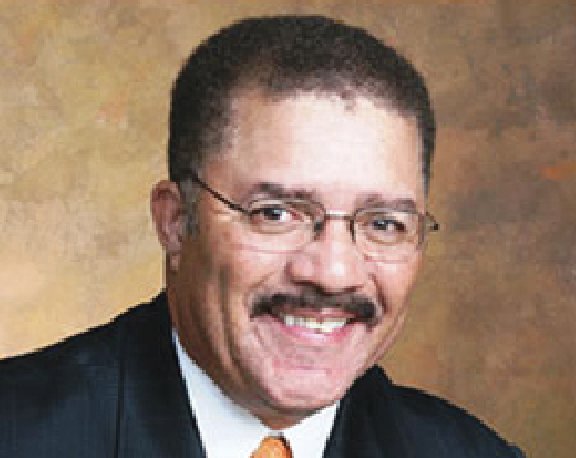First Lady tells Tuskegee to ‘rise above’
5/15/2015, 1:45 p.m.
DeWayne Wickham
I hope people who attended Tuskegee University’s commencement May 9 got First Lady Michelle Obama’s message. I hope they paid more attention to what she said than how some news media organizations portrayed the First Lady’s speech to graduates of the historically black Alabama school.
I don’t want them to think People magazine got it right when it ran as the headline her dismay over being pictured as a fist-pumping Black Panther on a cover of The New Yorker in 2008. It didn’t. And neither did CNN, which put this headline on its report of that speech: “Michelle Obama says she was held to different standard in ’08 campaign due to her race.”
What she told Tuskegee’s graduates was much more profound.
Mrs. Obama’s message was about overcoming obstacles — it was about the “double duty” black people have to our country and our race. She talked of the obstacles overcome by members of the Tuskegee Airmen, black combat pilots who served with great distinction during World War II. They trained at Tuskegee and suffered the indignities of Jim Crow racism while fighting for America.
“Now, those airmen could easily have let that experience clip their wings,” Mrs. Obama told her audience. “But as you all know, instead of being defined by the discrimination and the doubts of those around them, they became one of the most successful pursuit squadrons in our military.”
In citing some of the “bumps” she encountered during her husband’s White House campaign, Mrs. Obama was trying to make the point that she, too, faced the challenges of that double duty. They were examples that connected her to the larger theme of her speech — not its focus.
The idea of black double duty has deep roots.
In W.E.B. Du Bois’ 1903 book “The Souls of Black Folk,” he wrote about it this way: “It is a peculiar sensation, this double consciousness, this sense of always looking at one’s self through the eyes of others, of measuring one’s soul by the tape of a world that looks on in amused contempt and pity. One ever feels his two-ness — an American, a Negro; two souls, two thoughts, two unreconciled strivings; two warring ideals in one dark body, whose dogged strength alone keeps it from being torn asunder.”
This “two-ness” took on another manifestation during World War II when The Pittsburgh Courier, one of the nation’s leading black newspapers at the time, launched a “Double V” campaign. It called for victory over America’s enemies abroad and victory against racism at home.
Understandably, the first lady used the more contemporary examples of the hurdles she encountered during her husband’s presidential campaigns to illustrate how many black people continue to have to fight on two fronts to make a better life for themselves.
“We’ve both felt the sting of those daily slights throughout our entire lives — the folks who crossed the street in fear of their safety; the clerks who kept a close eye on us in all those department stores; the people at formal events who assumed we were the ‘help’ — and those who have questioned our intelligence, our honesty, even our love of this country,” Mrs. Obama said.
But her challenge — her overriding message — to the Tuskegee graduates and their family and friends who attended the university’s commencement was to “rise above the noise and pressures that surround you” to push for the “never-failing miracle of progress” that the struggle of equal opportunity has forced upon this country.
Whether you call that charge another double duty, an acknowledgement of our continuing “two-ness” or a Double V campaign of another kind, it was most certainly about something much bigger than the slights Mrs. Obama suffered on the way to the White House.
DeWayne Wickham is dean of Morgan State University’s School of Global Journalism and Communication.







